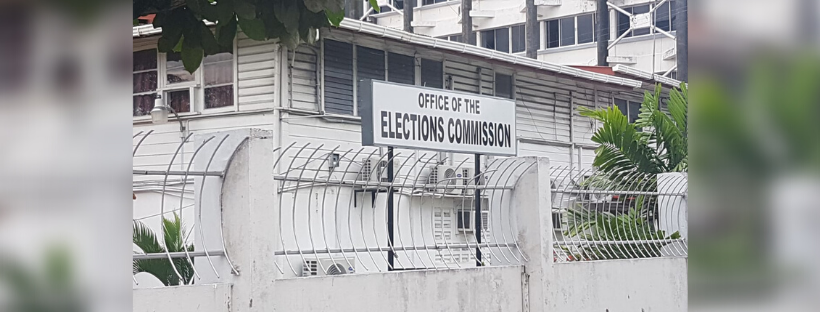Leader of the Opposition Bharrat Jagdeo is back to accusing the Government of Guyana of “people smuggling”: this time, he says the government is bringing thousands of Haitians into Guyana as part of a larger plot to flood the electoral list with government-desired voters. He is now calling for more stringent measures to be implemented at the Immigration Department to combat what he believes is an orchestrated scheme.
Jagdeo at a press conference held at his Church Street, Georgetown office yesterday said that the department should be investigated for not red-flagging Caribbean nationals who are placing the same addresses on their immigration forms. Though he used the term “people smuggling”, the practice he described is at odds with this term; people smuggling is the action or practice of illegally transporting people from one country to another but, according to Jagdeo, thousands of Haitians are entering Guyana at legal immigration ports and are filling immigration forms.
His theory is based on a notion that all Haitians that came to Guyana would have indicated common places of intended stay. The Guyana Standard could not confirm this.
However, Jagdeo could not provide any evidence and instead contradicted himself when he declared that he intends to find out the addresses that are placed on the aforementioned immigration forms.
“You can’t have every two days, people putting an address like [hotel’s name withheld] when the place has like maybe 25 rooms or I don’t know how many – and 80 will say they’re going there [to stay] every two days,” Jagdeo said.
Jagdeo further told the media that droves of persons are coming to Guyana as visitors and are not leaving. This occurrence he said, has been intensified after the December 21, 2018 no-confidence motion. However, Jagdeo’s claim of the smuggling of Haitians began some two years ago, long before the motion made it into the National Assembly.
In addition, the politician yesterday quoted the number of Haitian arrivals and departures, cited from the Parliamentary Sectoral Committee on Foreign Affairs. He said that in 2013, some 188 Haitians came to Guyana, with 99 subsequently departing our shores. In 2014, he said that 227 came and 113 returned to their country. For 2015, he said 770 Haitians came and 136 left, and at the end of April last year, 1,238 Haitians arrived in Guyana, with only 85 departing the country.
He indicated that within the last seven months, an estimated 8,600 Haitians arrived, of which only 25 returned. However, this figure was not provided by the Parliamentary Sectoral Committee on Foreign Affairs which has not met for the year. Jagdeo did not indicate where this figure came from.
Jagdeo links the apparent influx of Haitians to government’s push for house-to-house registration, which he estimated will be concluded in time to allow foreign nationals, including Haitians, to vote.
He said, “We believe that people are being issued with fake documents. We believe that they are being registered quietly by some areas by some enumerators who might be close to APNU since the activity is not being scrutinised. And therefore, many of these foreign nationals – not just Haitians but others – who are not eligible because Commonwealth citizens who are here for over one year are eligible to be registered but they will form part of a new voter’s list if house-to-house registration proceeds.”
According to Article 159 of the Constitution of Guyana, a Commonwealth citizen domiciled and resident in Guyana who is above the age of 18 may vote at an election. However, Haiti is not part of the Commonwealth and it is unclear how Haitians who would have arrived in Guyana no more than seven months ago would be eligible to vote at an election since it is not possible to be naturalised in such a short timeframe. Further, as citizens of a non-Commonwealth nation, Haitians would not be eligible to vote if they surpass a year in Guyana.
Jagdeo also claimed that other foreign nationals are being registered during the house-to-house registration process. He did not provide any evidence of this.
Jagdeo then turned his attention toward the Guyana Revenue Authority (GRA), calling for a “full-fledged” investigation of the entity. He claimed that Haitians who come here are being absorbed by the workforce and, in order to secure a job, Tax Identification Number (TIN) certificates must be obtained. He theorised that GRA is bending backwards to facilitate the issuing of TIN certificates to Haitian nationals who come here as visitors but are working.













